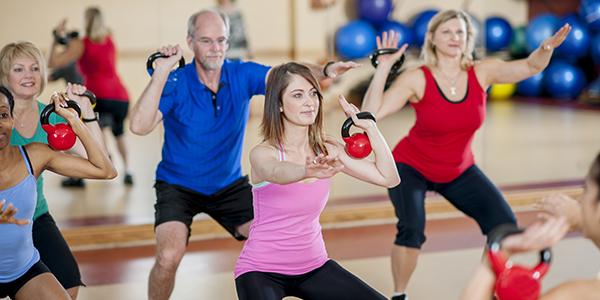
January 3, 2017, by Emma Thorne
The new year’s resolution fitness drive: a road to nowhere?
It’s January, when thoughts turn to the year ahead and the inevitable resolutions. In our New Year, New You blog series, guest bloggers from around the university will offer advice on what we should – and shouldn’t – do to be successful in our quest to a happier and healthier 2017 and beyond. In the first blog in our series, Professor Philip Atherton and Dr Beth Phillips of the School of Medicine tackle the issue of how to get fit and stick to an exercise plan.
The excesses of the festive period can weigh heavy on your mind and the bathroom scales. As a result, the new year’s resolution of exercising and losing weight is commonplace on top of the “new year, new me” ethos. In January, communal gym car parks are flooded, yet this tails off dramatically by spring with few stayers remaining with the gym stalwarts. Why do people lose motivation so quickly? This requires delving into the human psyche. Most people want a quick fix without doing the hard work. At first, starting exercise is hard and uncomfortable plus it impinges on a busy working and family life. The main keys to long term success include: i) getting over the first weeks where the newness to exercise makes it hard going, ii) finding a way to incorporate exercise into daily routines, and iii) feeling that the benefits are worth the effort. Many do not get over these physical and mental barriers.
Regarding the best and safest way to start… Exercising is generally not dangerous if you are healthy (though do seek the advice of your GP if you have any clinical conditions) so safety is typically a non issue. One major reason people give up is they simply find exercise too much like hard work. Bear in mind that it takes time for your body to adapt to the stress of unaccustomed exercise. So many people suffer and expect too much too soon (e.g. to increase the calories burned counter on gym equipment). So, start slowly and build. There is a principle in exercise science called “overload” where you go beyond your comfort zone to get better. You need to introduce overload slowly and improvements will surely follow.
Do you need to join a gym? Most people believe if they have made a financial investment they will be more likely to stick to it. Of course most people don’t. You really need to find a way to incorporate exercise into your daily life and if possible engage friends to exercise with you. This is a great motivational factor. You can also go to group exercise classes so you are automatically exercising with others; many such classes also allow you to set your own pace so you don’t feel out of place and intimidated by fitter, more practised folk.
What types of exercise give the best results? UK recommendations are for ~2.5 h of aerobic activity such as cycling or jogging each week and strength exercises 2-3 days per week that work on all the major muscles (lifting weights with the legs, hips, back, abdomen, chest, shoulders and arms). Unsurprisingly, the majority of the UK population does not achieve this. In terms of what is the best exercise mode for health, both “aerobic” and “strength” exercises improve metabolic health and induce weight loss. Therefore neither exercise mode is necessarily superior than the other – at least from a health perspective. That said – from a weight loss perspective, aerobic exercise is better (though it may enhance appetite and so make you eat more!) while for building muscle, strength exercise is better. Indeed, contrary to popular belief, despite not having to huff and puff, strength training leads to fat loss as muscle growth increases energy expenditure. High intensity training (you may have heard referred to as “HIT”) involving brief intense bouts of effort interspersed with short recovery is also very effective from a health perspective, despite not taking much time.
Take home messages? Find a way for exercise to fit your lifestyle, start slowly, exercise with others and don’t expect a quick fix. Also remember that many positive health effects take place inside your body so don’t judge “cost-benefits” solely on your weighing scales! If you stick at it: maybe you can eat, drink and be merry next Christmas without the guilt of 2016.
No comments yet, fill out a comment to be the first


Leave a Reply